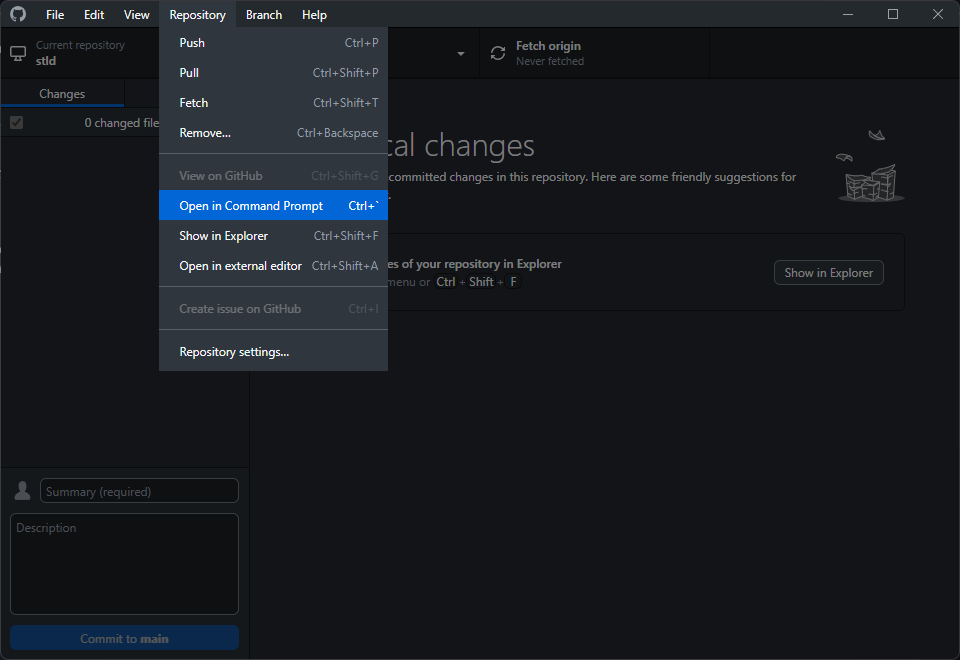| .idea/.idea.evermillion/.idea | ||
| Assets | ||
| Documentation | ||
| Packages | ||
| ProjectSettings | ||
| Sources | ||
| .gitattributes | ||
| .gitignore | ||
| .vsconfig | ||
| README.md | ||
| referencemap.xml | ||
| referenceType2File.xml | ||
spatial theory and level design: assignment 1
proof of concept and test repository for pushing beeg repositories to the forge
how do i add my repository?
-
add git files to the repository root/folder
-
manage your git repo with github desktop or via the command line
-
open your repository in the terminal
run the following:
git checkout -b main git lfs install git config lfs.https://forge.joshwel.co/<username>/<repository>.git/info/lfs.locksverify true -
make a repo and follow the forge's instructions
Important
if the project has a github deliverable, you must have different remote names
i would recommendoriginpointing to github, andforgepointing to the forgegit remote add forge https://forge.joshwel.co/mark/<username>/<repository>/ git push -u forge main$ git push -u origin main Uploading LFS objects: 100% (886/886), 2.9 GB | 45 MB/s, done. Enumerating objects: 4641, done. Counting objects: 100% (4641/4641), done. Delta compression using up to 16 threads Compressing objects: 100% (4637/4637), done. Writing objects: 100% (4641/4641), 51.45 MiB | 7.90 MiB/s, done. Total 4641 (delta 2185), reused 0 (delta 0), pack-reused 0 (from 0) remote: Resolving deltas: 100% (2185/2185), done. To https://forge.joshwel.co/mark/stld-asg1.git * [new branch] main -> main branch 'main' set up to track 'origin/main'.if all goes well it should look something like this, where there is a line for Git LFS (
Uploading LFS objects) -
profit
for best results, use remote name
originfor github, andforgefor 𝓁𝒶 𝓅𝑜𝒾𝓈𝓈𝑜𝓃 𝒹𝓊 𝒻𝑜𝓇𝑔𝑒# push changes to github git push origin main # push changes to forge git push forge mainsame things apply to pulling, have fun!
i previously didn't have .gitattributes, what now
it's a very involved process, and git is scary.
oh well, give up. restart your git repo if you can, else oops

